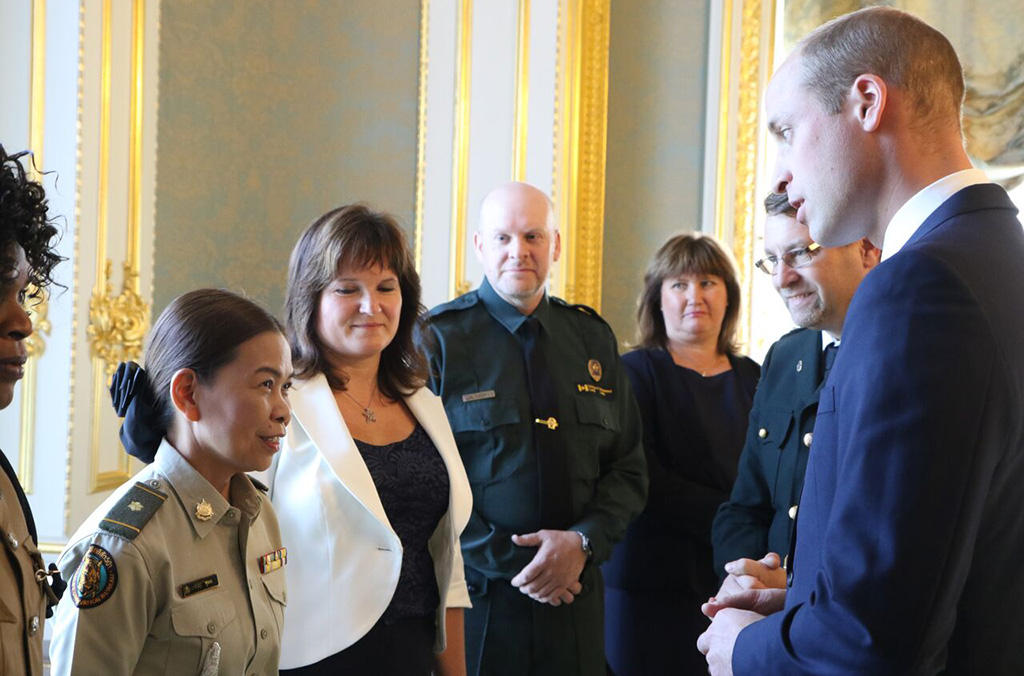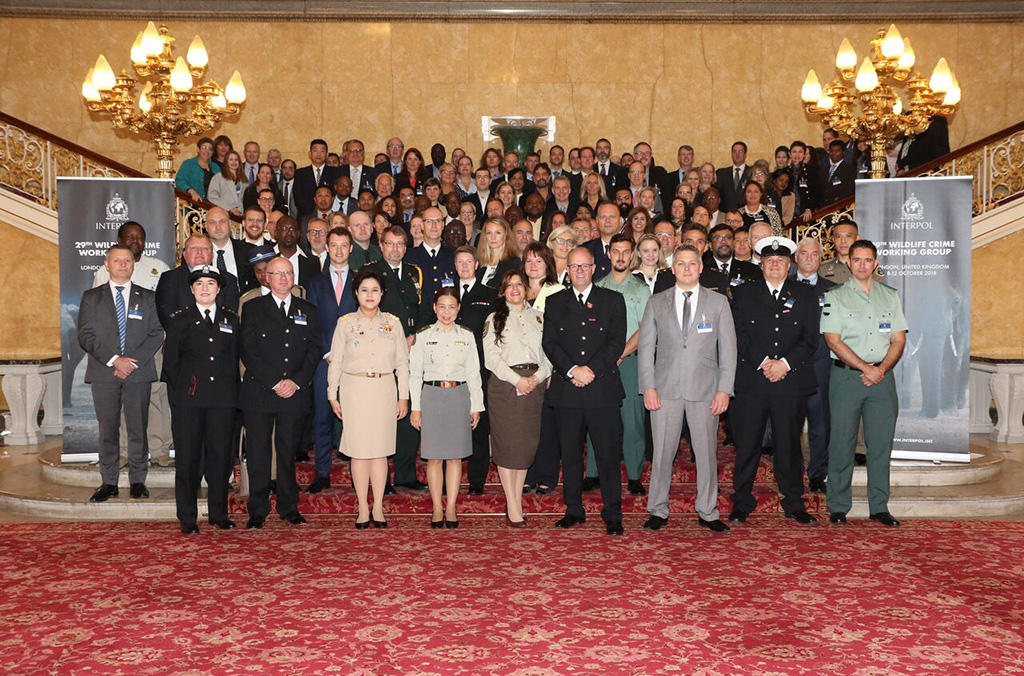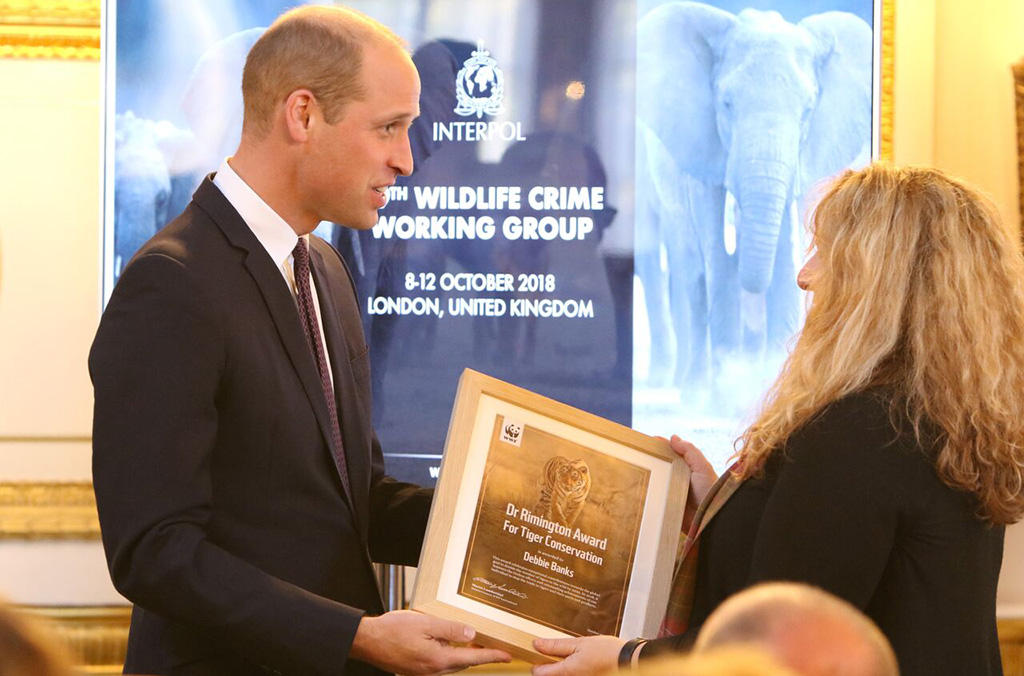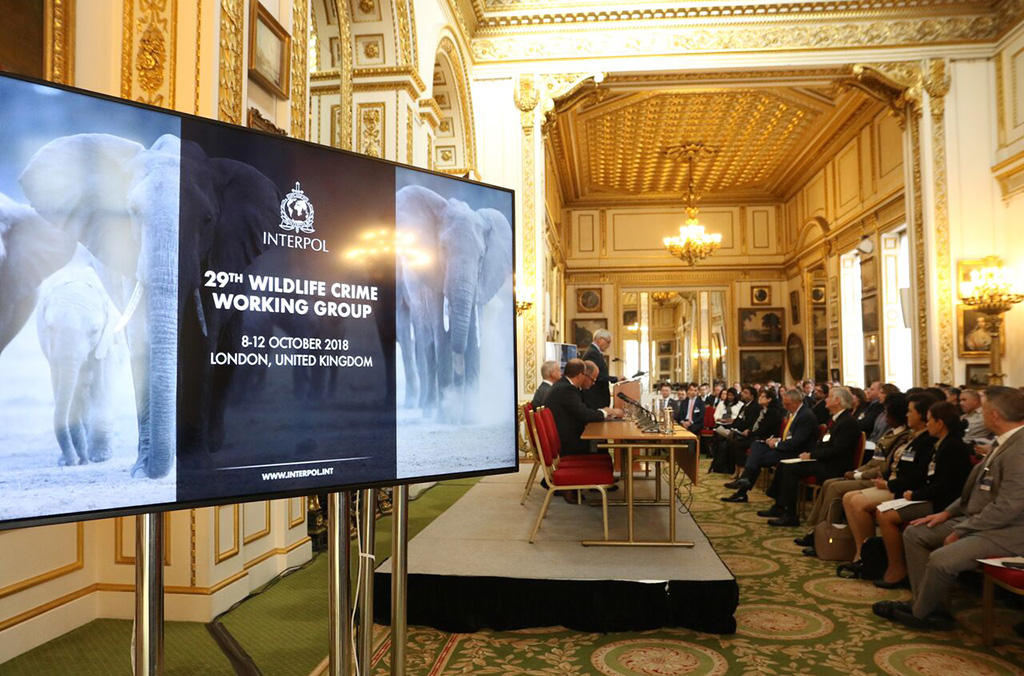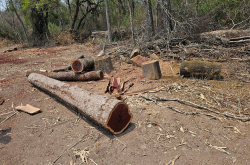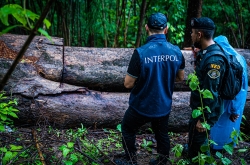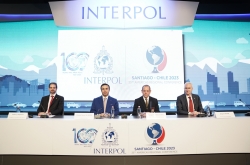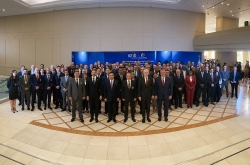LONDON, United Kingdom - An INTERPOL working meeting to define global strategy and coordinated action in tackling wildlife crime has closed in London with a call to boost multi-sector cooperation via INTERPOL.
INTERPOL’s 29th Wildlife Crime Working Group meeting brought together 170 experts from wildlife and park authorities in 45 countries to pave the way forward in combatting the poaching, trafficking, and possession of legally protected flora and fauna.
The Duke of Cambridge, who took part on the second day, presented awards for excellence on behalf of the Wildlife Crime Group Executive Board and met with frontline wildlife enforcement officers. The UK’s Under-Secretary of State for the Environment Thérèse Coffey opened the five-day (8–12 October) event.
The importance of digital evidence in wildlife trafficking investigations was high on the agenda, including a focus on preserving evidence properly for successful prosecutions.
“Wildlife crime leads to serious damage to the ecosystems that support our very existence, making it urgent for all countries to have the skills and tools they need to truly tackle the challenges this crime area brings with it,” said Grant Miller, Chair of the Wildlife Crime Working Group.
The UK’s Lord Hague chaired an open session on the transport sector, with a particular emphasis on building it up for better compliance and inspection methodologies. Lord Hague chairs the working group’s financial taskforce aimed at disrupting international money flows linked to wildlife crime and reinforcing the global law enforcement response.
An integrated global response
During a closed-door session restricted to law enforcement, investigators took stock of the previous year’s achievements, with a particular focus on Operation Thunderstorm, the second in a global ‘Thunder’ series initiated by the working group.
Operation Thunderstorm targeted the people and networks behind international wildlife crime resulting last May in millions of dollars-worth of seizures globally. It involved police, customs, border, environment, wildlife and forestry agencies from 92 countries.
With participating countries recognizing the key role of INTERPOL in addressing the global challenges of the wildlife security landscape, INTERPOL’s Coordinator for Global Wildlife Enforcement Henri Fournel underlined how the results of Operation Thunderstorm sent a very clear message to wildlife criminals that INTERPOL was now targeting them very specifically.
“As the world’s largest police organization, and with a mandate to share and process criminal information globally, INTERPOL ensures that no one country, region or agency is left to tackle illegal wildlife trade alone,” concluded Mr Fournel.




